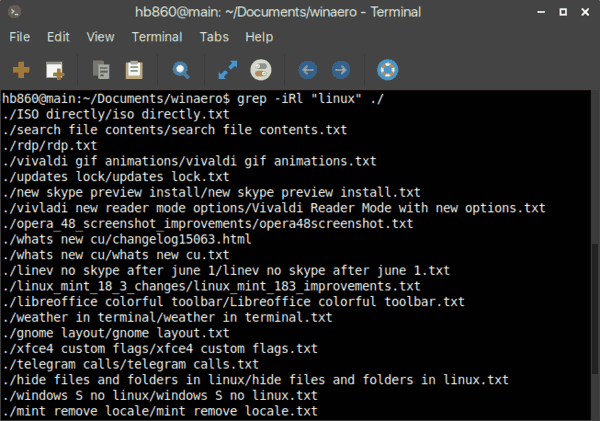

lib/mysql/my_database_dir/a_big_table.ibdĩ97M. Sudo du -aBM 2>/dev/null | sort -nr | head -n 10ġ825M. Support for the language server protocol is built into Kate through. Minor note: the pattern -name ' ' looks for file with a trailing space (s). rs and Cargo files, or to restart the IDE, for this change to take effect. Note: Prefix with sudo to include directories that your account does not have permission to access.Įxample showing top 10 biggest files and directories in /var (including grand total). You can use bash substitution to extract the file name, and eliminate leading spaces. Leave off more if using a smaller number.2>/dev/null - exclude "permission denied" error messages (thanks arguments:.For example: cd 'nombre con espacio'/ Using a character before each space. -BM to output the sizes in megabyte (M) block sizes (B) To try to escape spaces of the names of the files and directories in the Linux terminal, you can do it in these ways: Including '' (double quotes) in part of the path where there are spaces or in all of it.du -aBM 2>/dev/null | sort -nr | head -n 50 | more My favorite solution uses a mix from several of these good answers. It allows to browse through the directories and show percentages of disk usage with ncurses library. It provides a fast and easy-to-use interface through famous du utility. On the "related packages" section of gt5, I found ncdu. It is possible to navigate and ascend to directories by using cursor-keys with text based browser (links, elinks, lynx etc.) It displays what has happened since last run and displays dir size and the total percentage. 98, NT, 2k, and XP) and Unix (OSX, Solaris, Linux, etc.).

This small and effective programs provides more convenient listing than the default du(1). It allows two replicas of a collection of files and directories to be stored on different hosts. Years have passed and disks have become larger and larger, but even on this incredibly huge harddisk era, the space seems to disappear over time. One application that looks very promising is gt5. The following command is required to copy or delete files with spaces in their name, for example: cp 'my resume.doc' /secure/location/ rm 'my resume. Using fswatch, we can easily monitor the changes being made in files and/or directories.

The next command find files between 10MiB and 12MiB: find / -size +10M -size -12M -lsĪpt-cache search 'disk usage' lists some programs available for disk usage analysis. Fswatch is a free, open source multi-platform file change monitor utility that notifies us when the contents of the specified files or directories are modified or changed. If you want to find files between a certain size, you can combine it with a "size lower than" search. The next command will list all files larger than 10MiB ( not to be confused with 10MB): find / -size +10M -ls To remove the white spaces in an individual file and substitute underscores in their place, you can use the following command: myfile'some file.txt' mv 'myfile' (echo myfile tr ' ' '') Here we are assigning a variable myfile with the file name that we wish to rename. Your script breaks on all kinds of ways because it runs various special characters through their shell handling instead of treating them literally.If you just need to find large files, you can use find with the -size option. The second command does the same, but uses $f to refer to the whole original name and the modifiers :h and :t to extract the directory and base parts of the name. The parentheses in (**/)(*) cause the directory part of the path (everything up to the last /) to be assigned to $1 and the base name of the file to $2. all files in the current directory and in subdirectories recursively), into files in the same directory ( $1) and with the base name transformed to replace every character matching by a _. The first zmv command renames all files matching **/* (i.e. zshrc, for interactive use): autoload zmv Zsh provides the zmv function which makes many file renaming tasks easy. Zsh is part of the base OS X installation but needs to be installed through the package manager on most Linux distributions and installed from ports on *BSD.


 0 kommentar(er)
0 kommentar(er)
